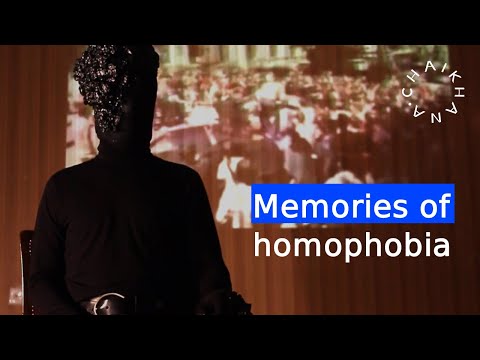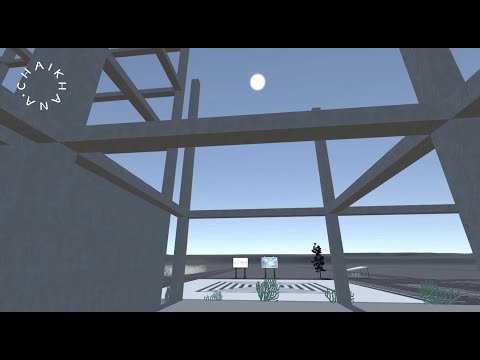როცა ლოცვა ვეღარ ითქმის/ Not Enough for a Prayer
Link to the article: http://bit.ly/2gs2iXY
Author: Giorgi Parkosadze http://bit.ly/2gslqVL
Simon Shimshilashvili guards an empty building. Since summer 2016 the former farmer holds the key of Georgia’s third largest synagogue, which sits lonely in Oni, a town nestled in the Caucasus mountains. The wooden benches of the lavish, an eclectic-style temple, dating back to 1895, have been deserted for years as the once-thriving Jewish community is now reduced to barely 12 people in the town of 6,100.
When the synagogue’s official keeper left for Israel, where he spends part of the year, Shimshilashvili was tasked to keep an eye on the temple. In fact, not much more is required. As Judaism requires a minimum of ten men to open the synagogue for worship, the building remains empty and is locked most of the time and Shimshilashvili routinely goes around to make sure all is fine.
Most of his relatives have moved to Israel and Shimshilashvili himself contemplates about traveling back and forth between the two countries. But not everyone wants to abandon these mountains. Suliko Shimshilashvili (not related to Simon) is adamant about staying, although her children and grandchildren have long left for Israel as well. Now 76, she remembers the vibrant community in the 1960s when Jews outnumbered ethnic Georgians in town. In the whole of Georgia, Jews totalled up 80,000 as early as the 1970s, but at the fall of Soviet Union many opted to move to Israel as the 2002 census recorded 3,541 people of Jewish faith. Today the number is believed to be much smaller.
Forty-nine year old Ismail Amshikashvili, employed at the local water supply company, is battling between his desire to remain in his native Georgia and the call of his faith to Israel. “I am afraid I would not fit,” he fears.
ლოცვისთვის არასაკმარისი
როცა ლოცვა ვეღარ ითქმის
სიმონ შიმშილაშვილი ცარიელ შენობას იცავს. 2016 წლის ზაფხულიდან მოყოლებული მას აბარია საქართველოს სიდიდით მესამე სინაგოგა, რომელიც რაჭაში, ქალაქ ონში მდებარეობს. 1895 წელს ეკლექტურ სტილში აშენებულ ამ უზარმაზარ ტაძარში უკვე წლებია აღარვინ დადის, რადგან ერთ დროს საკმაოდ მრავალრიცხოვანი ებრაული მოსახლეობიდან დღეს მხოლოდ 12 ადამიანია დარჩენილი.
როდესაც სინაგოგის პირვანდელი მცველი წავიდა ისრაელში, სადაც ის წელიწადის ნაწილს ატარებს ხოლმე, სიმონს დაევალა მასი ყარაულობა. მაგრამ ეს ბევრ შრომას არ მოითხოვს. იუდაზმის მიხედვით, მინიმუმ 10 კაცი უნდა იყოს სინაგოგაში, რათა ღვთისმსახურება ჩატარდეს. შესაბამისად, სინაგოგა, როგორც წესი, დაკეტილია. სიმონი მხოლოდ ხანდახან მიდის, თვალის შესავლებად.
სიმონის ნათესავები ისრაელში გადავიდნენ საცხოვრებლად. თავადაც ხშირად ფიქრობს ხოლმე ორ ქვეყანას შორის ცხოვრებაზე. მაგრამ ყველას არ უნდა ამ მთებით მოცული ქალაქის დატოვება. სულიკო შიმშილაშვილს მტკიცედ აქვს გადაწყვეტილი, რომ წასვლას არ აპირებს, იმის მიუხედავად, რომ მისი შვილები და შვილიშვილები წლებია ისრაელში არიან. 76 წლის სულიკოს კარგად ახსოვს 1960-იან წლები, როდესაც ონში ებრაელები ეთნიკურად ქართველებსაც კი სჭარბობდნენ. 1970-იან წლებში საქართველოში 80 ათასამდე ებრაელი ცხოვრობდა, მაგრამ საბჭოთა კავშირის დაშლის შემდეგ ბევრი წავიდა ისრაელში. 2002 წლის მაჩვენებლით, საქართველოში სულ 3541 ებრაელი იყო შემორჩენილი. ეს რიცხვი ახლა, სავარაუდოდ, კიდევ უფრო ნაკლებია.
49 წლის ისმაილ ამშიკაშვილს, რომელიც ადგილობრივი წყლის მომარაგების კომპანიაში მუშაობს, ჯერ კიდევ არ აქვს გადაწყვეტილი სად იცხოვრებს თავის სამი წლის შვილთან და მეუღლესთან ერთად. “ისრაელში ქართველებს გვეძახიან. აქ [საქართველოში], კი ებრაელებს,” - აღნიშნავს ისმაილი.
Chai Khana-ის სხვა ვიდეოები

Andro Dadiani: Living behind a name | სახელის მიღმ...

From Baku to Marneuli: In the Search for God

@HOME WITH A CAMERA-Es regnet | Chai Khana
 07:38
07:38
Trialeti - one village, three faiths | თრიალეთი -...
 11:04
11:04
Body as a cage|სხეული, როგორც გალია
 23:15
23:15
What does it feel like when your world shrinks to...
 05:40
05:40
@HOME WITH A CAMERA - How deserted lies the city |...
 11:36
11:36
State of emergency | საგანგებო მდგომარეობა | Chai...

მსგავსი ვიდეოები

მამა საბა ჭიკაიძე♥️ როცა გრძნობ, რომ ლოცვა აღემატება შენს შე...
მამა შალვა კეკელია

mama ilia leqsi - ''განდეგილი ილარიონ ბერი!"
11 11

Tensey - Parasite
Tensey Music

როცა ლოცვა გვეზარება | ამონარიდი ლექციიდან
მამა თეოდორე გიგნაძის ქადაგებები / Father Theodore

როცა ლოცვა გვეზარება (ამონარიდი ლექციიდან)
davitianni georgia

დარეჯან სუმბაძე. 12. ვნების შობა: 39.9
Dare Sumbadze

ლოცვა ჯადოსგან თავის დასაცავად და სხვა ბოროტი თავდასხმისაგან...
Elena's vlogs Lifetime E.F.

დეპრესია. როცა დაიღალე ყველაფრით. გვპასუხობს მოძღვარი.
Elena's vlogs Lifetime E.F.